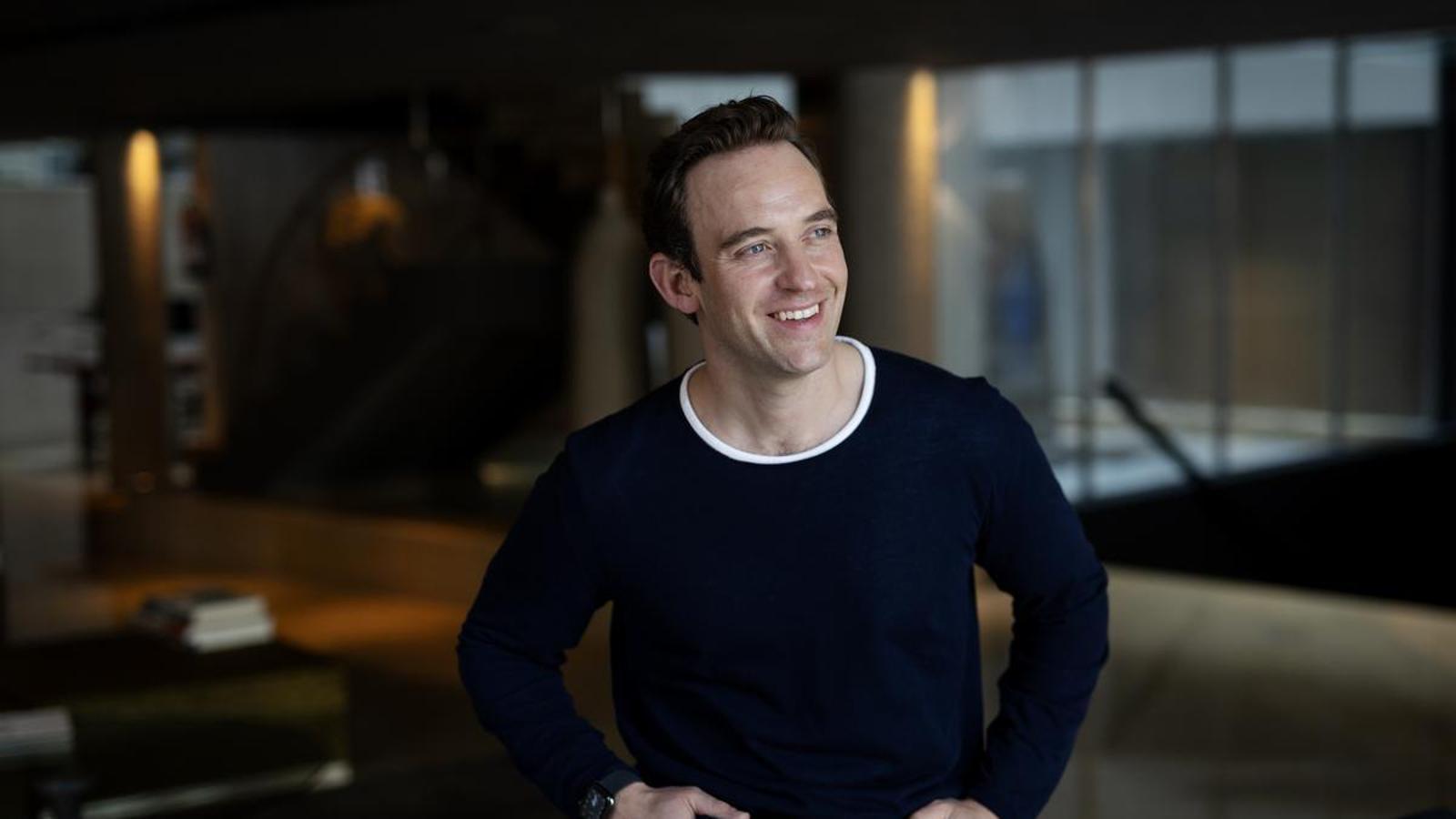Joël Dicker: "You wouldn't give your child a glass of wine to relax, would you? So why would you give him your cell phone?"
Writer publishes 'The Catastrophic Visit to the Zoo'


BarcelonaJoël Dicker (Geneva, 1985) explains that with each new book he sets himself a challenge, and that this time the objective was to put himself in the shoes of a child. Joséphine, the protagonist of The catastrophic visit to the zoo (La Campana / Alfaguara, translated by Imma Falcó), is a "special girl", precocious and with a long tongue who finds herself thrust into a crazy adventure accompanied by her classmates. The book begins with an apparently deliberate flood that triggers a series of unexpected events with the rhythm that Dicker has already demonstrated in best-sellers previous, how The truth about the Harry Quebert case (2013) and The Baltimore Book (2016).
The book's sleeve says this story is aimed at "readers ages 7 to 120." Why did you want to broaden your audience?
— I didn't decide before writing the book. As I've done on previous occasions, I went with the flow. I've had adult narrators, male and female, in first and third person. This time, I wanted to try giving a voice to a girl. I liked the change in tone. It wasn't a strategic matter, but rather an organic one. When I write, I want to be authentic.
What is the main difference between Joséphine and the other narrators?
— A child's voice gives greater freedom. I was drawn to that spontaneity of speech, the different way of understanding and explaining things, and, above all, the relationship with adults. In this novel, I talk about democracy, diversity, and tolerance. The same book told from an adult's point of view would be moralizing; it would seem like I was passing judgment. The child, on the other hand, can say whatever she wants.
Are adults the bad guys in the story?
— It's a book about adults, narrated by a child. The protagonists are a group of children, but they're never alone. They're always talking to or observing an adult. That's why the book has two reading levels: that of the child reader and that of the adult. I'm not making a gratuitous critique of the adult world, but rather a reflection on how our perspective changes as we grow older. Why do we lose the tolerance, the open-mindedness, the joy of life that children have? They never give up, they always ask questions and want to understand everything.
You're the father of a six-year-old boy. How has this influenced you?
— The other day, my son told me that he thinks the Sun is going to explode and the Earth is going to disappear. He wanted to understand why this could happen; he was worried and intrigued. I remember worrying about these things when I was little, too. Now I don't care, and I think, if it happens, I'll be dead and that's it. When you become an adult, you're pretty much indifferent about what will happen to the Earth or what will happen to others if you're not there.
How do you remember your childhood?
— I was a curious and somewhat rebellious child, especially when it came to my relationships with teachers. I didn't have a problem with authority, but as a child, I couldn't accept a teacher who was mediocre or didn't delve deeply into an idea.
In fact, in the book you offer various reflections on education. What's your perspective on this issue?
— From the outset, school is a place of life, because it's where children spend most of their childhood. They'll spend more time at school with teachers and classmates than with parents and siblings at home. But the importance of school is sometimes forgotten, the fact that it's a fundamental place for our future. Parents count on the school to solve all their problems in educating their children, such as the issue of cell phones, but not everything falls to the school.
Democracy as presented to children is one of the novel's major themes. Why did you want to address it?
— Because everyone talks a lot about democracy, but when it comes down to it, we don't have much desire to assume our responsibilities. I don't know what the situation is like in Catalonia. In Switzerland, there are frequent elections, but not many people exercise their right to vote. I find it incredible. We should have a 95% turnout rate, but we're not even at 50%. In Geneva, we're below 35%.
Is it a generational issue? Do young people vote less?
— Young people feel more disconnected from the political apparatus they are part of. The political apparatus cannot be dissociated from the people who vote, and I think this is the biggest problem we have. A fracture has developed between citizens and the political apparatus, when in principle they should go hand in hand. Why do so few people turn out to vote? Perhaps it's because the system doesn't work, and that's precisely why we must question the democratic model.
What literary references have you used to construct this story?
— All the novels I've liked have an impact. Reading is a construction of ourselves, of the authors we've read throughout our lives. As a child, Roald Dahl was important to me, and thinking about him has made me want to write books. As a teenager, I discovered Ken Follett and the pleasure of turning pages to learn more. Ken Follett introduced me to Zweig and Klaus Mann. That's the magic of literature, which connects you with different things. The books I don't like are also a source of inspiration, because they allow me to see what doesn't appeal to me and why.
At the end of the book, you explain that one of the driving forces behind this novel was seeing how some bookstores you knew had closed. Is the world stopping reading?
— Yes, and it worries me a lot. Reading gives us tools to build our lives, to understand others. All of this is at stake. Being a reader means having power over yourself, having tools to avoid being manipulated in a world of social media, images, and fake news. It worries me that people, especially young people, spend all day on their phones. It worries me to see parents in a restaurant giving their children their cell phones so they can stare at the screen. You wouldn't give your child a glass of wine to relax, would you? Why do you give them a cell phone? This use of phones by children should worry us all.
